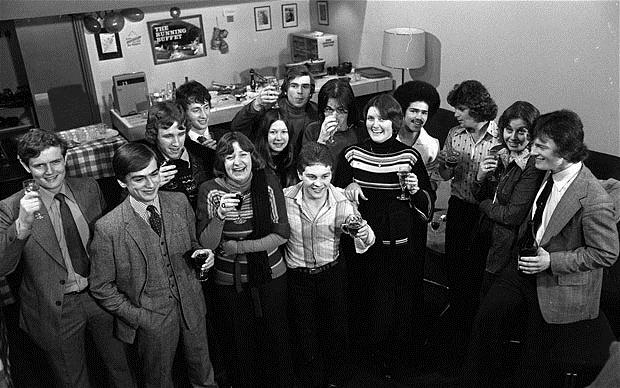I am prompted to ask just how much life for children has changed in the last fifty or so years.
I have been avidly watching the first reality television programme about a group of children who were selected at age seven to be filmed and followed throughout their lives on a seven-yearly basis. They were selected from different social groups, the working class East London youngsters, the middle-class private school attenders, those who lived a privileged life on the outskirts of a large city such as Liverpool, the rural child who lived on a farm, and children who were raised in large residential homes as they were in the 1950s.
We have seen them through their burgeoning adolescence, moving into young adulthood with their own families, or not as the case may be, to now
when they also have an opportunity to reflect on the life they have lived.
“From the days of the week to the ages of man, seven is mystically the number that seems to mark the epochs of our lives, and that’s the concept, hardwired into our psyches, that Granada Television tapped into when in 1964 it began commissioning the unique documentary series Seven Up!.
Taking as its primary inspiration the remark attributed to the founder of the Jesuit educational system, Ignatius Loyola, ‘Give me a child until he is seven and I will give you the man’, it started by tracking the lives of 14 seven-year-old British children from a wide variety of social and economic backgrounds. Since then, it has reported back on them at seven-year intervals, with each episode cumulatively presenting extracts from previous programmes, dramatising how far the subjects have travelled in the intervening periods.”
http://www.telegraph.co.uk/culture/tvandradio/9206960/Seven-Up-Now-we-are-56.html
It has been fascinating, looking back to see the innocence and lust for life on the majority of these children’s faces. They did not have to think about who was twittering about whom, or how cyber bullies began their unkind actions. Theirs was a very black and white life. There were few hidden enemies, except life itself. Some of them had unhappy experiences. For example one of the children living in a children’s home considered whether he would have a wife when he got older, but he didn’t think he would as she might make him eat Brussels sprouts.
I used footage from these seven-yearly programmes for a lot of my tutorial input into the education of students who wished to work with children as a profession. There was always much to discover and much to debate.
It has been interesting to see how each individual has made their way in life. Some have done it with dignity and others have struggled, as happens from time to time.
The thing it demonstrates most markedly is that the social system in the UK hasn’t really changed that much over the years. We now have, allegedly, a sub-working class of unemployed and unemployable groups of people. We have a larger immigrant population and issues with regards to economy and opportunity for children to develop and grow.
When I compare these children’s lives with that of my own daughter born in the seventies, I don’t know that she would say things have changed all that much apart from an anticipated standard of living with internal bathrooms and washing facilities. What has made a huge difference is the way we communicate and the acquisitions we now all feel should be ours. Most families own at least one computer, possibly several mobile phones, perhaps an iPod and other accoutrements of modern day living. Does this make their lives easier or more problematic as they now assume they need to have these things?
I hear of more and more families who have made a stand against the invasion of modern technology by banning television, mobile phones and other accessories. Will this make their children appreciate their own imagination of self-reliance when they attain adulthood? Probably not, but there is no harm in trying.
Do we consider that the riots of the Summer of 2011 were directly as a result of people believing that this was the only way to protest about the deprivation facing an increasing number of families due to the economic down-turn? Again, I don’t have the answer to any of these questions, I only know that the majority of parents want to do their best for their children and provide them with at the very least a good standard of health and living in an environment where they can feel confident and not at all fearful of what life may throw in their direction.
As a mirror reflecting how life has altered throughout the intervening years, this is a remarkable, unique piece of television – something that can never be repeated and something that will serve as an historic document when all of us of that generation are long gone. It has been captured with respect and gentleness. There is very little obvious intrusion by the television crew into the lives of these subjects apart from every seven years. Some opted out for a few years and then decided to return. Others left and never came back. I will watch each episode with anticipation and a little nostalgia.
